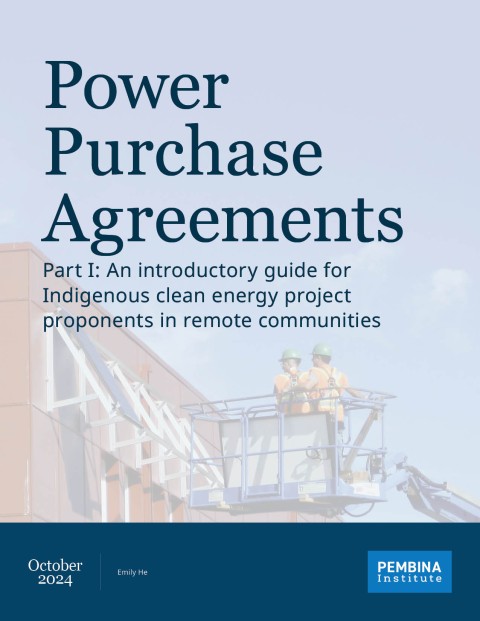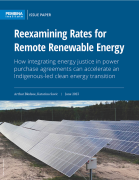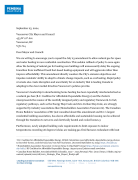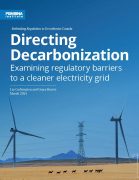Energy policies in jurisdictions across Canada are built on complex arrangements of regulations, expectations and standards that Indigenous clean energy proponents must navigate when transitioning their communities to clean and affordable energy. One of the more challenging steps to developing clean energy projects is the power purchase agreement (PPA) process, when proponents must work with utilities to define the terms of the purchase and sale of clean energy.
The Pembina Institute has developed this two-part guide to support Indigenous clean energy project proponents who are advancing clean energy development in their communities. In each guide, we provide proponents with an overview of the key elements of the PPA process, including important contract terms and policy considerations, that they should be aware of as they prepare to collaborate with a utility to deliver clean energy and reduce diesel use within the community.
Part I: An introductory guide for Indigenous clean energy project proponents in remote communities
Part one defines PPAs, gives an overview of the phases of the project development process, and provides general information on how to prepare for the PPA process. As part of the guide, we explore:
- The phases of the project development process and best practices for proponents
- How to prepare for a PPA process, including when to engage with the utility during the development process and a pre-PPA checklist
Part II: An overview of contract terms and conditions for Indigenous clean energy project proponents in remote communities
Part two explores PPAs in greater detail, focusing on PPA contract terms and conditions. As part of the guide, we explore:
- Contract terms and conditions, highlighting standard clauses, non-financial clauses and financial clauses
- The importance of a dispatch strategy for medium and larger projects and defining disconnection and curtailment terms in PPAs for smaller projects
- Utility purchase rate calculations and the avoided, long-term avoided and true cost of diesel, along with methods for rate fluctuations
- Frequently overlooked rate considerations — environmental attributes, ancillary services and battery ownership
The PPA process can be challenging and confusing, but there are many Indigenous clean energy leaders who have successfully navigated this stage of project development. Our hope is that this series can help other project proponents achieve similar success, enabling them to move their projects one step closer to a clean energy outcome that positively supports their communities and Indigenous-led visions of change. We are grateful to the network of Indigenous clean energy proponents, clean energy developers, and utilities who have shared stories, perspectives, and analysis in support of this work.
This series provides general guidance only. We strongly encourage IPPs to seek appropriate legal support to navigate their unique energy and legal landscapes.
More Reading: Examples of PPAs in remote communities
Yukon: Yukon Energy Corporation Energy Purchase Agreement
Northwest Territories: Northwest Territories Power Corporation PPAs (page 563)
Québec: Contrat d’approvisionnement en électricité entre Kuujjuarapik Whapmagoostui Renewable Energy Corporation et Hydro-Québec
British Columbia: British Columbia Hydro and Power Authority of an Electricity Purchase Agreement and Amending Agreement for the Pine Creek Project







